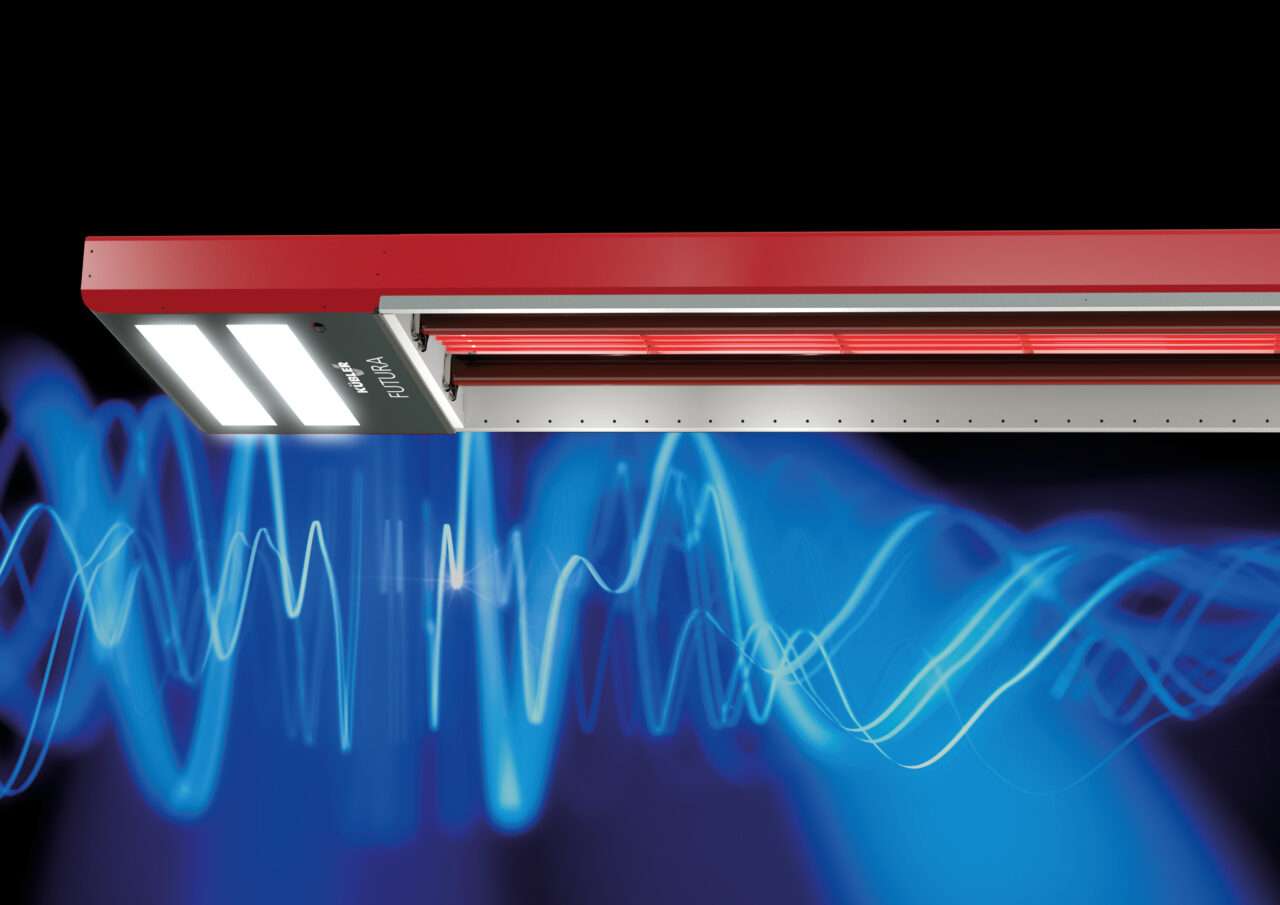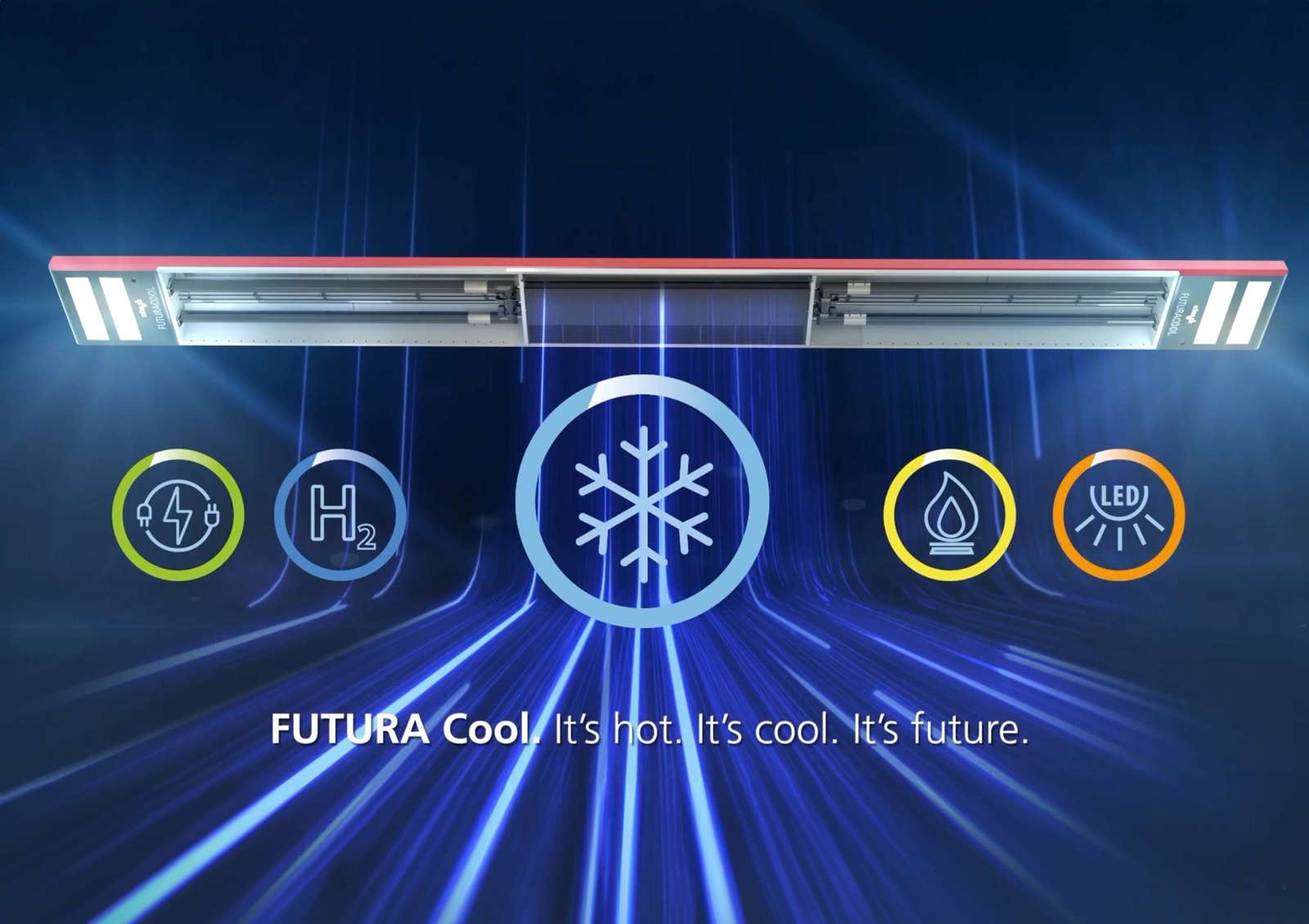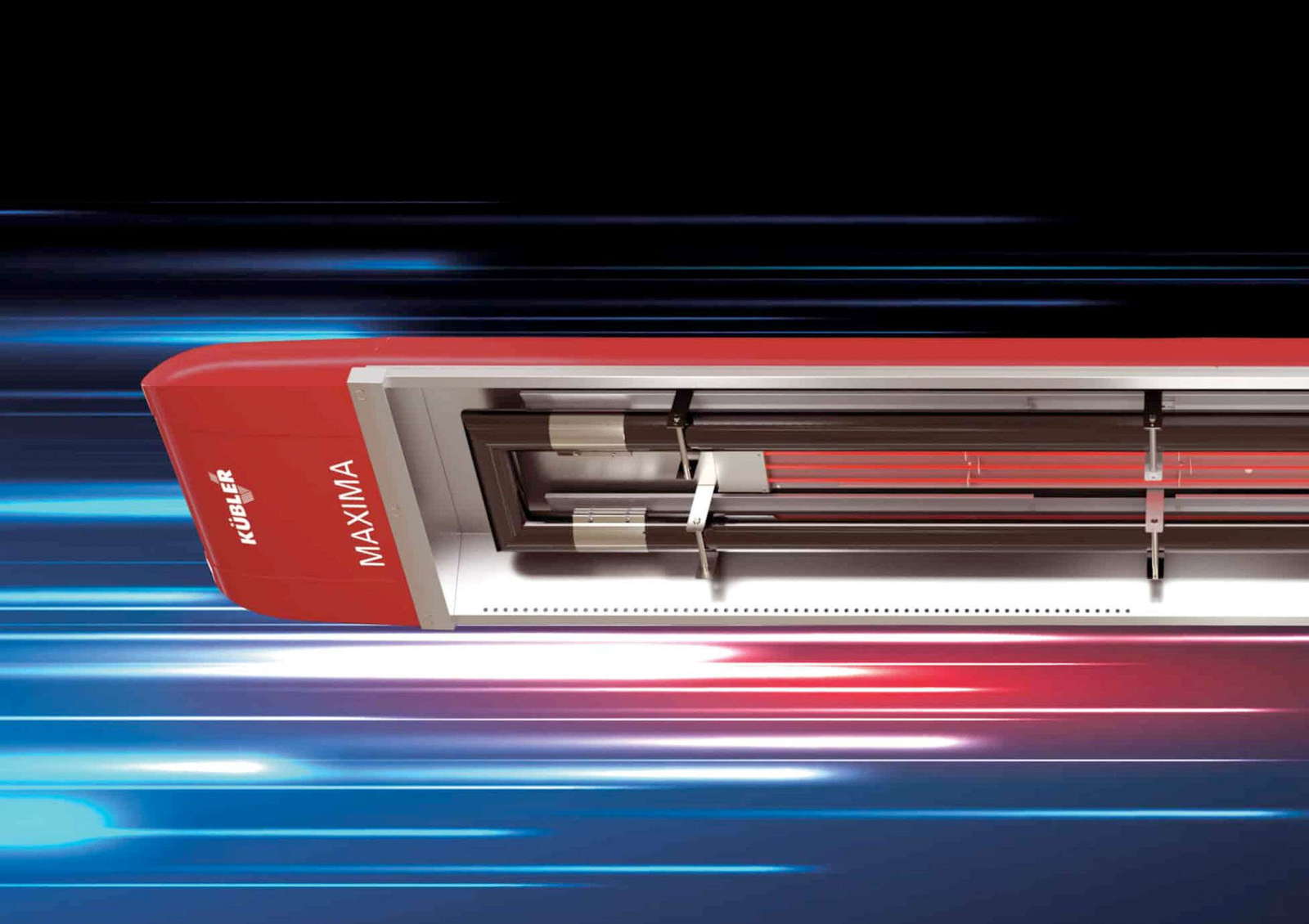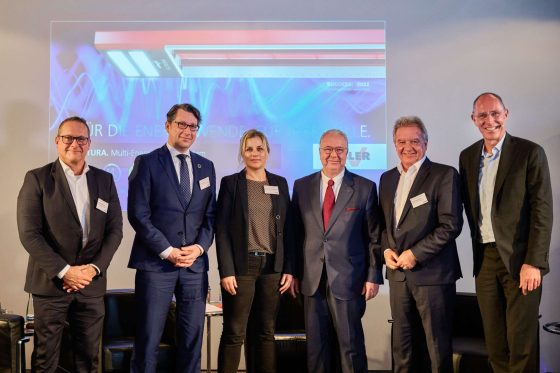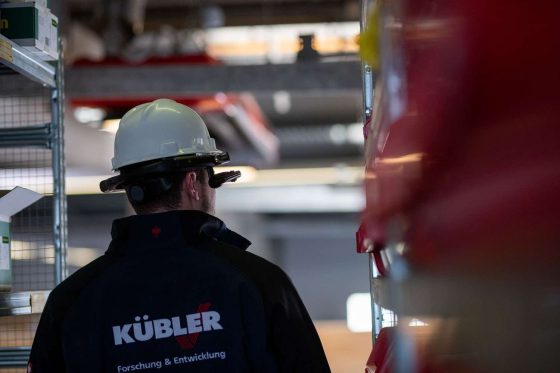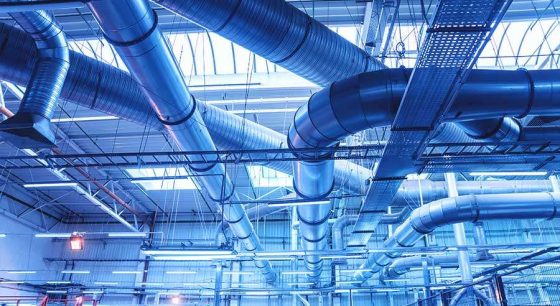KÜBLER nominated for the German Innovation Award for Climate and Environment 2022
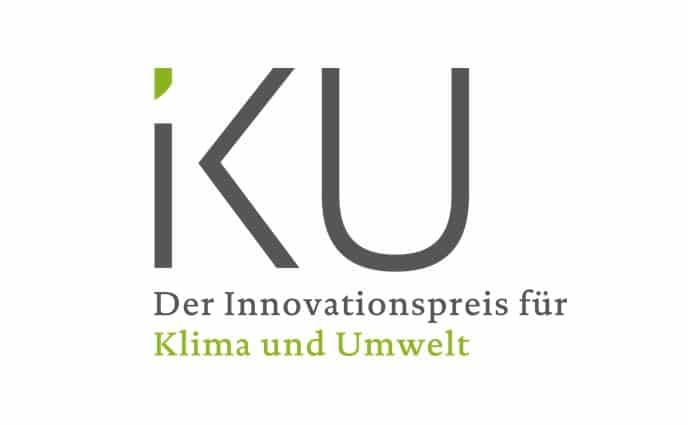
The Federal Ministry for Economic Affairs and Climate Protection has been honoring the commitment of industry and research to climate and environmental protection for many years with the IKU - the German Innovation Award for Climate and the Environment. The 21 nominees include many big names as well as a medium-sized company: KÜBLER GmbH from Ludwigshafen. It specializes in the development of energy-saving hall heating systems and entered the competition with HeizWerk, a smart solution package for industry. Behind this is nothing less than a clever concept for energy-efficient refurbishment in production, storage and other hall buildings without the need for capital expenditure.
HeizWerk is the name of a new, very economical and easy-to-implement service concept and means in a nutshell: "Renting hall heat". For the first time, this offers operators of hall buildings an alternative to investing in modern, energy-saving hall heating technology. The big advantage is that the user incurs no investment costs, no depreciation costs and no significant personnel or time expenditure. HeizWerk is therefore particularly attractive where the need for refurbishment has been recognized but budgets are not released for various reasons. This applies to both new builds and the modernization of existing buildings in trade, industry, events, sport and many other indoor buildings.
"In HeizWerk, we bundle our most efficient, fully digitalized and networked heating systems, which are the most innovative with five patents," says Thomas Kübler, founder and Managing Director of the company. In addition to the heating technology itself and the digital control system, the service portfolio also includes engineering, installation, maintenance and servicing as well as the operation and permanent monitoring of the heating system.
The efficiency of the interaction between KÜBLER technologies is so high that energy savings of between 30 and 70 percent are achieved, which not only pay for the system rent, but also provide a significant plus in the cash register. The bottom line is usually 10 to 25 percent compared to the previous heating costs. Consumption costs are therefore reduced so much by the modernization that they are lower than the previous costs despite the rent.
"HeizWerk is an important lever with which we want to contribute to achieving the climate targets," says Thomas Kübler. After all, it makes saving energy in the hall sector more attractive. Because despite the high need to renovate buildings and systems technology in the non-residential building sector, people are reluctant to invest. In practice, the money primarily flows into production processes or is held back in economically uncertain times - such as the current pandemic. In addition, investment is not very attractive from a tax perspective, as depreciation reduces the company's profits and therefore runs counter to the management's mission. The result is a refurbishment backlog. HeizWerk makes the use of energy-efficient heating technologies in new builds and refurbishments feasible for many companies in the first place. For example, when hall buildings are rented, no budget is available or the investment does not appear attractive for other reasons, e.g. due to short-term profit and financial targets.
KÜBLER has specialized in efficiency technologies for over 30 years and is regarded as an innovation leader for the economical and environmentally friendly heating of buildings with room heights of four metres or more. The medium-sized company from Ludwigshafen consistently builds on the further development of infrared technology as the most sensible heating principle for halls. With its innovative achievements, KÜBLER repeatedly sets benchmarks in the industry and regularly receives awards. Examples include the German Sustainability Award, the Rhineland-Palatinate Innovation Award and, most recently, the Hidden Champion in the Palatinate.
The rental model solves many problems for hall operators in one fell swoop and is also highly attractive in terms of climate policy. HeizWerk makes it possible to achieve maximum energy efficiency with high yields even under difficult building conditions without incurring any investment costs of your own. This is underlined by customer testimonials, among other things.
Hans Fuhrmann, Director of Production at Dexion Gonvarri Material Handling:
"KÜBLER's solution is a great offer for companies that want to avoid large investments and still benefit from modern heating technology. We would never have modernized our old heating system without the rental model."
"The high-ranking jury, headed by Prof. Ottmar Edenhofer (including Director and Chief Economist at the Potsdam Institute for Climate Impact Research (PIK)), made its decisions on the basis of scientific assessments by the Fraunhofer Institute for Systems and Innovation Research." 1 A total of 150 applications were reviewed and only 21 innovations were nominated. The German Innovation Award for Climate and the Environment (IKU) is funded by the National Climate Initiative of the Federal Ministry for Economic Affairs and Climate Protection and was announced for the 8th time in 2022.
"The many submissions show the enormous potential in the areas of sustainability, circular economy and resource conservation that can still be leveraged with good ideas," said Oliver Krischer, Parliamentary State Secretary at the Federal Ministry for Economic Affairs and Climate Protection. "I am pleased to see that more and more companies are willing to do their bit for the climate and the environment. For many years, the IKU has been drawing attention to technologies, products and services that can make an important contribution to sustainable business."
1 BMWI press release "21 projects nominated by jury for the German Innovation Prize for Climate and the Environment", Berlin, January 17, 2022. weblink: https://www.bmwi.de/SiteGlobals/BMWI/Forms/Listen/Medienraum/Medienraum_Formular.html?resourceId=184318&input_=184194&pageLocale=de&templateQueryStringListen=&to=&from=&documentType_=PressRelea-se&documentType_.GROUP=1&cl2Categories_LeadKeyword=&cl2Categories_LeadKeyword.GROUP=1&selectSort=&selectSort.GROUP=1&selectTimePeriod=&selectTimePeriod.GROUP=1#form-184318
-
It is only a small segment, but of great importance: in the current discussion about the energy transition, industrial buildings are being neglected. They only make up two percent of the building stock in Germany. However, they are responsible for around 15 percent of building-related energy consumption and the associated greenhouse gas (GHG) emissions. In the current Building Energy Act (GEG), however, industrial buildings are treated in the same way as daycare centers - and there are indications in a draft bill that the federal government wants to focus exclusively on heat pumps as a technology. KÜBLER GmbH in Ludwigshafen invited experts to discuss this issue. Daniel Föst, construction policy spokesman for the FDP parliamentary group in the Bundestag, announced his intention to change the legislative system.
-
New gas heating quickly in 2023 - often the cheapest decision that also pays off for the environmentThe BMWK is currently causing a stir with a draft bill. This is because it involves a categorical ban on gas heating systems. According to the plan, from 2024, only heating systems powered by 65 % renewable energies may be used. Formally, this can only be heat pumps, district heating or biomass heating. This raises the question: what about the openness of technology in Germany? And who should pay for it? Decentralized gas-powered heating systems are often the only economically and functionally viable solutions, especially in hall buildings.
-
Only around half of German companies are aware of their waste heat potential - this is what dena writes in its publication on waste heat utilization as part of the Energy Efficiency Initiative. This means that an estimated 226 TWh of usable heat goes unused every year. That is 36 % of the energy used by the entire manufacturing industry. Clearly, this costs companies an enormous amount of money, but at the same time the unused waste heat has a negative impact on the environment. Around 60 million tons of the greenhouse gas CO2 are unnecessarily evaporated into the atmosphere every year. In view of rising energy costs and climate protection targets, companies simply can no longer afford to do this.
-
ESG stands for Environmental, Social and Corporate Governance and refers to the three key areas of sustainable corporate management: environment, social affairs and corporate governance. But what does this have to do with you and the way you heat your production halls and warehouses?
